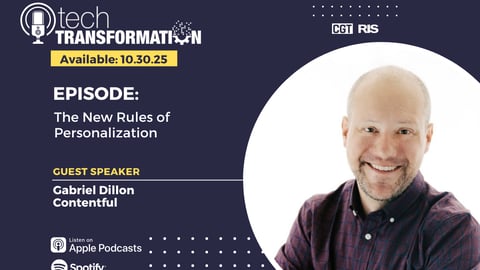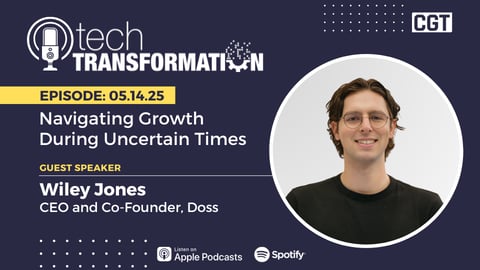Estée Lauder’s Raheel Khan On Maximizing Generative AI
The Estée Lauder Companies has long been a pioneer in using AI, and they’re now breaking new ground with their in-house Beauty Trends platform. In this episode, we’re talking with Raheel Khan, SVP of foresight and growth Intelligence, about how it helps them stay ahead of today’s consumer preferences.
Listen to learn:
- Some of the most impactful ways Estée Lauder is leveraging generative AI
- How their Beauty Trends platform is driving value
- The role of data within their AI strategy
- What Khan looks for when it comes to building and cultivating AI talent
- Why prompt engineering doesn’t need to be as complicated as it sounds.
- What he’s most excited about when it comes to the future of AI in consumer goods and retail
- What's next for Estée Lauder with AI
Subscribe
Excerpts
On their Beauty Trends platform: “For the last seven, eight years or so, we've been mining millions of daily conversations, and these conversations have been across review and ratings platforms or social media platforms as well as blogs, etc. So we've been really capturing these consumer conversations and trying to really parse out and understand what are the signals that can help us with trends and consumer needs — so across benefits, forms, finishes, textures, subcategories, looks, but also culture.
“This Beauty Trends platform sort of leverages our ability to capture this data, which we've been doing for many years, but now with generative AI, actually it's able to very quickly also generate concepts. It's able to match our best assets, our product assets, or even some of our creative assets, claims assets. It's able to match it to those trends that are happening in real time in the market. It's actually also able to then tell us if we have enough inventory sitting or not.”
On prompt engineering: “The best prompt engineers are actually the best teachers. If you are able to teach an intern or a new employee who comes into the company, and if you can break down what we do or what you're trying to teach them in simple steps, that's how you should be basically speaking to the generative AI.
"So what I see is that prompt engineering is really about asking questions in a simple way where you're teaching this machine how to respond and what to say. It has the knowledge of everything. It has the world's knowledge, has your company's knowledge, but if you are not going to know what to ask and how to ask it … earlier you said garbage in, garbage out when it comes to data; it's also garbage in, garbage out when it comes to asking questions.”
On the future of AI in retail and consumer goods: “I think value is created in the world not by generating content, which is what Gen AI does today — not even by generating content which is connected, which is I think the next level of where we're getting there. We're not there yet as an industry, but we're going to get there this connected end-to-end, which is what the trend example was about.
“I think that it's actually when you can get consumers to really connect to what they need from a product standpoint, that's really when it starts to get interesting. It gets even more interesting when you can really enable connections that allow people to connect with each other. So connect with community.
“When it comes to beauty, beauty is about emotional and physical wellbeing. It's about discovery. But at the end of the day, self-expression is really about connecting to culture. You express yourself through beauty, through makeup, for example, because you want to connect with a community. And so that's what the human desire is, right? That's what humans want. So generative AI today is about generating content, just like the internet maybe in the ’90s was about giving information, but then when the internet was able to connect people with products, Amazon was created, and really it took the internet to the next level.
“And then obviously when the internet was able to connect people to each other, social media platform companies were created. So if we think about that, really, I think that's where this technology goes as well. And I think for us as a company, it is extremely exciting because we are a culture company, and we're here to deliver to these consumers that we have the ability to connect, belong with communities, express ourselves, and have wellbeing.”







